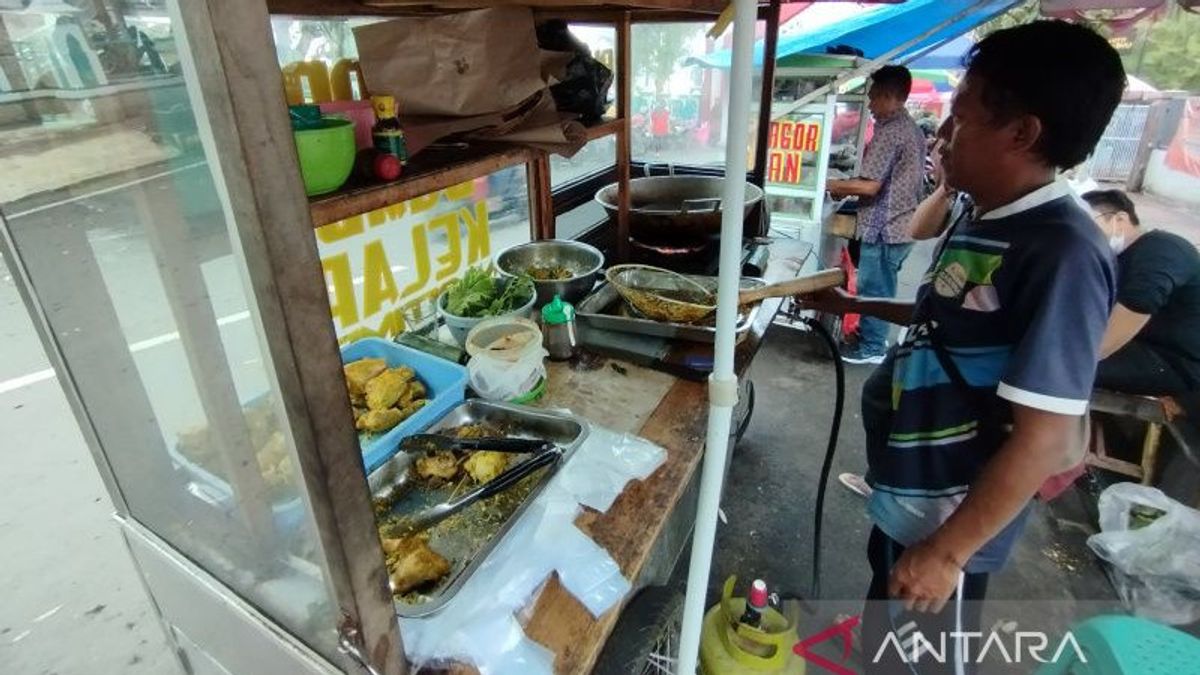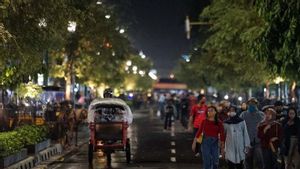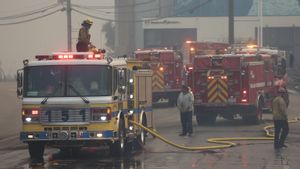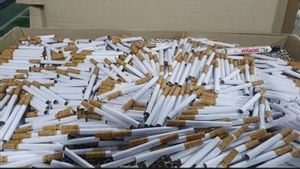The activities of Cianjur residents after the earthquake are now starting to gradually return to normal. Several traders who previously stopped selling, are now reporting sustenance again.
A number of traders who were victims of the earthquake returned to selling activities to meet the economic needs of their families. Previously, they were forced to stop selling because they took care of damaged houses and were worried that aftershocks would occur.
Traders' activities in various sectors have been seen crowded on a number of roads. Including at crowded points in the community, such as public hospitals, Cianjur Square, and other protocol roads in Cianjur, Saturday.
A fried chicken trader around the Great Mosque of Cianjur, Agus Nana, said the earthquake on November 21, 2022 caused severe damage. This forced him to stay in a refugee camp.
"My house, if it was pushed a little, could collapse," he said, as reported by Antara, Saturday, December 3.
Since that incident, he admitted that he was forced not to sell fried chicken on the side of the road around the Cianjur Regent's office. The reason is, Agus Nana must look after the children who live in refugee camps.
For four days, he decided not to sell and was busy cleaning up house items in refugee camps. At that time he also did not want to leave the child because he was still traumatized by aftershocks.
"Four days I didn't sell, for fear that if I leave my child at home, I have two children. It's okay to have no income, it's important to live first," he said.
Four days after the earthquake, Agus Nana began to dare to sell even though there were still feelings of concern. For a few days selling, he said, traders have returned to being busy, as well as many buyers, plus many people have come to Cianjur to provide assistance centered at the Cianjur Regent's Hall.
"Now it's getting busy normally, when the incident happened here it was quiet, now it's crowded, in the market goods are also available, but there are items like onions whose prices have gone up," he said.
Meanwhile, Siti Masitoh admitted that she could only sell after a week of the earthquake, because she had not previously thought about selling related to the condition of her house which was badly damaged.
"It's only been a week since selling, after the earthquake, it doesn't sell, because goods such as stoves are damaged, and fortunately the wheels for selling are not damaged," he said.
This 60-year-old woman revealed that long-term in refugee camps will certainly not earn income for the needs of daily life.
For this reason, he admitted that he forced himself to sell again with makeshift equipment and buy more new furniture.
He hopes that by returning to selling, he can stay in income, especially if he can improve the condition of the house and household appliances that were previously damaged by the earthquake.
"While waiting for help (improvement of the house, ed.) from the government, I sell, not bad," he said.
Other traders have also been seen selling hard, such as on Jalan BLK, Cianjur Kota District, shopping centers, and crowd points. Despite the worry, their economic needs forced them to fight fear.
The English, Chinese, Japanese, Arabic, and French versions are automatically generated by the AI. So there may still be inaccuracies in translating, please always see Indonesian as our main language. (system supported by DigitalSiber.id)













